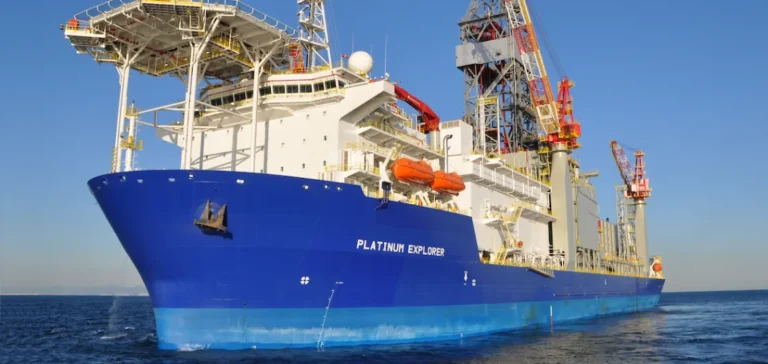Vantage Drilling International, registered in Bermuda and operating from Dubai, announced the immediate termination of a contract valued at approximately $80 million. The project, concluded in early September, was set to mobilize the vessel Platinum Explorer for an ultra-deepwater drilling campaign of about 260 days. According to the company, recent changes across several international regulatory frameworks made execution legally impossible without breaching compliance obligations.
A synchronized regulatory tightening across multiple jurisdictions
During the first weeks of October, several sanctions regimes were reinforced by United States and European authorities. The new measures extended restrictions on services and equipment for so-called sensitive energy activities, directly affecting technical providers in the offshore sector. For Vantage Drilling, whose ecosystem relies on classification societies, insurers, and suppliers subject to these regulations, the compliance risk quickly rendered the contract inoperable.
Market authorities were notified in accordance with Article 17 of the European Market Abuse Regulation (MAR) and Section 5-12 of the Norwegian Securities Trading Act. This process is intended to ensure immediate transparency regarding any information likely to affect the company’s listed securities. The group confirmed that the termination decision was taken as soon as execution proved impossible, with no delay in disclosure and no further comment.
Heightened legal risk due to dependence on sanction-bound providers
Although domiciled outside the European Union and the United States, Vantage Drilling depends on logistics and finance chains strongly anchored in regulated zones. Protection and Indemnity (P&I) Clubs, correspondent banks, and specialized equipment manufacturers remain subject to United States and European export-control regimes. This structural interdependence makes any change in sanctions immediately capable of affecting ongoing contracts.
The end customer was not disclosed, and no regulatory authority provided details on the operating area. The Platinum Explorer’s previous campaign was conducted in South Asia, which suggests a potential rebalancing of the company’s geographic portfolio before the latest constraints took effect. This uncertainty increases planning challenges for offshore drilling suppliers and subcontractors.
Operational consequences and spillovers for the drilling market
Halting this contract creates a temporary revenue gap for the group, estimated under sector pricing norms at roughly $80 million over the originally planned duration. The withdrawal comes a few weeks after the sale of the Tungsten Explorer, reducing the number of units directly available for rapid redeployment by Vantage Drilling. However, the company retains a leaner financial structure after the partial repurchase of fixed-rate debt at 9.5%.
Market participants anticipate a gradual redeployment of drilling units to areas less exposed to regulatory constraints, such as the Gulf of Mexico, Brazil, or West Africa. Campaigns based in jurisdictions with stable compliance parameters can now command higher dayrates, partially offsetting the increased contractual risk in other regions.
A clear signal for contract management in offshore services
Drilling companies and their financial partners are revising termination and force-majeure clauses to incorporate scenarios of abrupt sanctions changes. This trend is driving stronger supplier verification mechanisms, along with continuous surveillance of payment and insurance chains. The Vantage Drilling case highlights the need for offshore operators to maintain contract clauses adapted to rapid geopolitical shifts.
These developments also illustrate the sector’s growing complexity, where regulatory compliance has become an operational parameter as decisive as the technical or financial performance of drilling units. Market attention is now focused on the ability of industry players to reassess operating areas in line with evolving international sanctions law.






















